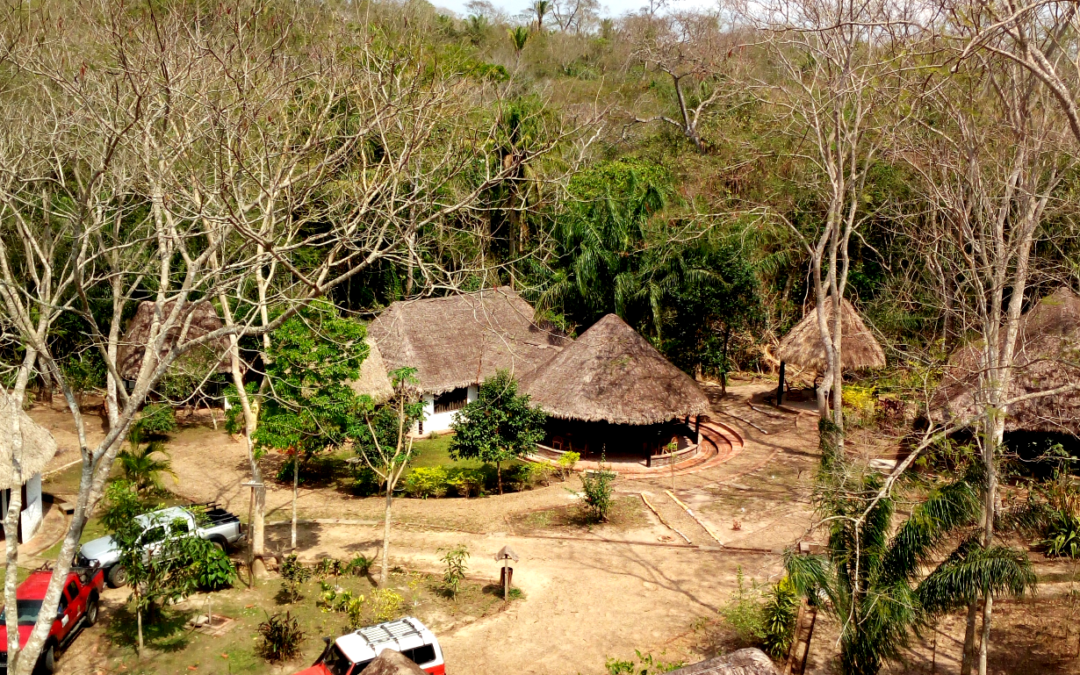
Etta Projects CTC, Bolivia
Etta Projects CTC, Bolivia
Buena Vista, (state of Santa Cruz, province of Ichilo) Bolivia
Contacts:
Pennye Nixon, Director of Operations
Bolivia: Amanda Martin, CTC Director
Etta Projects has worked in Bolivia for the past 13 years. EP believes that healthy communities evolve from empowered leaders with innovative ideas, tools, and strategies to improve existing conditions. To respond to this need, Etta Projects has opened a Community Transformation Center (CTC) in Bolivia to provide training, continuity and increased sustainability for those leaders working on past, present and future projects. Etta Projects CTC sits in the buffer zone of the Amboró National Park on 96 acres. It is located on a hilltop with an exquisite view of the forest of large trees: giant figs, mahogany, cedar, and many more. The site is already designed to host visiting groups with existing structures. We anticipate hosting our first training in July.
The CTC will be a creative and dynamic place for EP professionals and indigenous community leaders to meet and exchange ideas and practices, with the goal of transforming indigenous leaders into agents of positive change in their families and communities, and as part of the global community. Leaders need time and resources to build healthy communities. The CTC will provide the space and resources, plus contacts with members from other communities, continuing education and training, and inspiration in key public health areas of water, sanitation, hygiene (WASH) and health. This will help community leaders from diverse backgrounds connect, share ideas and learn together, to address common challenges and to seek sustainable solutions.
With this facility we will be able to provide in-depth, technical and practical trainings (1-5 day workshops) for community leaders (elected officials, health and sanitation promoters, medical staff, water committee members, youth and women’s leaders, and more). Additionally, we will have the needed space to have on site practicums and provide an integrated, practical, functioning model for each of the thematic areas (dry latrine, health promotion, model water systems, medicinal plants, organic garden, alternative energy sources, etc.).
In order to create a center that is self-sustaining, EP also will make the CTC available to groups of 10 to 15 university students from the U.S. and elsewhere for 7 to 12-day trips to interact with local villagers, volunteer on projects (working on installation, construction, education, and implementation), and create an exchange of ideas and best practices for improved health, sanitation, and water systems. Additionally, Bolivian and international non-governmental organizations (NGOs) will be invited to use the CTC for retreats, conferences, and meetings.
Due to the location near the National Park, environmental groups will be invited periodically for research or conservation work. Our goal is to create a sustainable center within the first 3-5 years.
The CTC aims to accomplish these goals:
- Improve sustainability of past, present, and future projects.
- Provide the space, resources, training, and inspiration for improved public health.
- Coordinate where possible with like NGOs to work toward best practices in the areas of water, sanitation and health care.
- Expand knowledge and exposure of Etta Projects locally, nationally, and internationally.
- Grow Etta Projects’ service area.
Etta Projects has a history of working with many Rotary clubs in the US, Canada and Bolivia. Our projects have been supported over the years by multiple club, district, matching and global grants. We feel fortunate to have Rotary as a partner.
Immediate Needs:
- Finances to make the CTC service ready. (The structures and property have not been used for over 2 years)
- Internet & phone access.
- Construction of model water, sanitation and healthcare solutions
The communities we serve:
EP serves communities in rural Eastern Bolivia who live without adequate water, sanitation and access to health care. With a population of approximately 10 million, Bolivia is one of the poorest countries in South America. 43% of the population lives below the national poverty line – in the rural areas, this number rises to 63%. As of 2012, 42% of the population was under the age of 19 (2014, Unicef in Bolivia, Unicef). Only 24% of rural Bolivians have access to improved sanitation.
Etta Projects’ first programs, from 2003 to 2009, included meals to support malnourished children and economic classes for their mothers. In 2009, Etta Projects shifted its focus to address clean water, sanitation, health and women’s empowerment in community development. Since 2009, the projects have positively impacted the quality of life for over 64,500 people, including:
- Over 100 community leaders have been trained in health promotion (3 year program) and in addition 21 rights promoters, and 56 indigenous medicine promoters. The face of health is changing in communities where these leaders serve.
- Construction of 380 ecological composting latrines in 13 communities, helping to reduce open defecation and water-borne illness and disease.
- Improving water systems in 21 rural communities, bringing clean water directly to homes, and training water committees in each community.
Since 2009 we have worked with agricultural workers that live deep into the sugar cane or soy fields. With our move to the CTC we will add communities surrounding the Amboró National park who subsist on what they make from growing coffee, cacao, and citrus. The issues of lack of clean water, safe sanitation, healthcare and electricity are the most pressing concerns.
Etta Projects CTC
Etta Projects CTC, Bolivia

